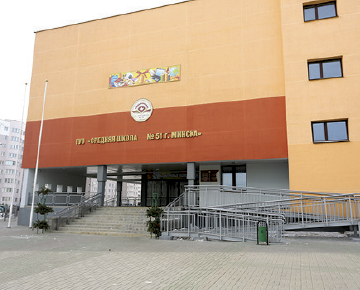Entrance to school #51, in Minsk, involves production of special electronic card
Galina Chernik, the director, tells us, “The system informs us of late arrivals, absences, and the time pupils spend in the building. Parents can also receive SMS messages, so they can track their child’s movements.”
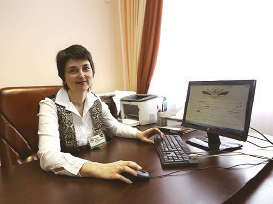
School director Galina Chernik
“It’s impossible to shirk school unnoticed,” admits 7th form student Vladislav Primako. To log in to a computer in IT class, pupils simply swipe their cards, rather than using passwords.
The Centre for Identification Systems, at the Academy of Sciences, has created the system, which is unique in the CIS (and globally); introduced two years ago, it has many possibilities, with cards not only providing entry to school, but finding use to access bank funds, library books and free public transport. The Deputy Technical Director of the Centre, Alexander Reshetnyak, tells us, “We wanted to create one device to allow pupils access to various services.” The cards include photo data, full name, date of birth and school number, being issued by the Education Committee at the Minsk City Executive Committee.
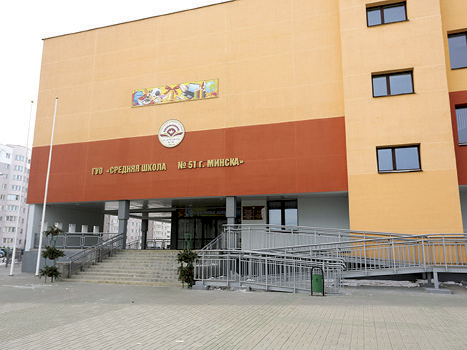
Something similar exists in Europe, but tends to be used only for school access and facilities rather than acting as a wider ID card. Kazakhstan, Russia and Ukraine are interested in adopting the system, which is so far operational at 12 Minsk schools, being used by 7,000 pupils. Ms. Chernik notes that IT teachers are particularly fond of the system, which allows them to lock down computers when they need to command children’s attention. They can also help individual pupils by accessing monitors from their own ‘teacher station’.
The electronic cards can be used to make payments in shops, being linked to a parent’s bank account, with restrictions applied on credit balance (to avoid youngsters spending the family’s housekeeping money!)
Natalia Kotreleva has four children at school #51: Dasha, Masha, Nastya and Vanya. Each has an electronic card, so their mum awaits four SMS messages in the morning, and keeps track of all expenses. She tells us, “Weekly reports come on each child by e-mail and I can limit their spending.”
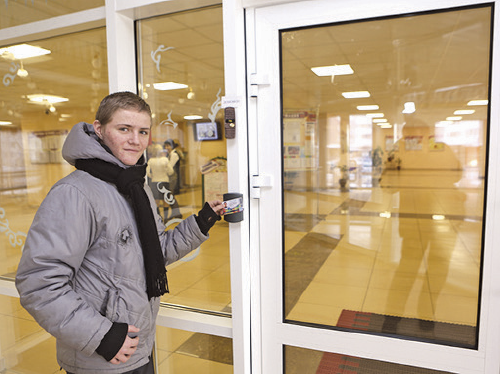
Entrance to school #51, in Minsk, involves production of special electronic card
The Academy of Sciences plans for pupils to use the card to pay for hot meals in the canteen rather than just drinks and rolls: software is being developed. Naturally, such items as cigarettes cannot be paid for via card.
Ninth-former Karina Tarasevich, like many of her schoolmates, borrows more library books thanks to her card, which keeps her up to date on her lending and return dates. “It takes about two minutes to look up,” she explains.
Mr. Reshetnyak shows us a card, with its contactless chip, antenna, magnetic strip and unique bar code. Each has protection against illegal access and can only be read within 10cm. Radiation levels are a hundred thousand times less than from a mobile phone. Cards are renewed every three years, as is usual, including to update photos; of course, the plastic also deteriorates. As soon as a child leaves school, the card is blocked.
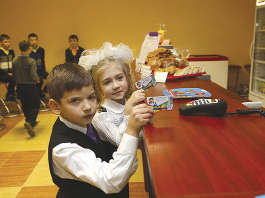
Card can be used to pay for school canteen food
Minsktrans is keen to allow use on public transport, only needing to co-ordinate the organisation.









